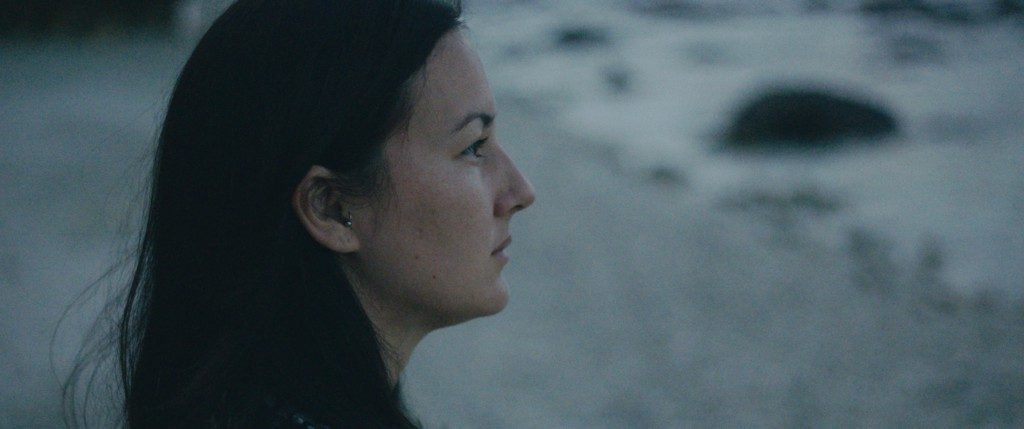Gabrielle Brady is an Australian filmmaker who focuses on documentary and hybrid films. Her short film “The Island” was commissioned as part of the Guardian documentary series and premiered at the 2017 Sheffield festival. “Island Of The Hungry Ghosts” is her feature debut.
“Island of the Hungry Ghosts” will premiere at the 2018 Tribeca Film Festival on April 19.
W&H: Describe the film for us in your own words.
GB: The film is a story about trauma therapist Poh Lin Lee, who works on Christmas Island, a wild and remote land in the Indian Ocean. At the heart of its jungle is a high-security immigration detention center where Poh Lin counsels people who are being detained after trying to seek refuge in Australia. We are with Poh Lin in her intimate therapy sessions that go inside the psychological experience of the people being indefinitely detained.
As much as the film is about Poh Lin and the people she works with, it is also about the mystery of Christmas Island itself, one of the last discovered places on earth.
W&H: What drew you to this story?
GB: One huge element in the beginning was my friendship and connection with Poh Lin. It wasn’t just her position as a therapist in the middle of this impossible situation — it was also the way Poh had of grasping what was happening and the way of engaging with it. This is what touched me deeply and propelled me to develop the film idea.
Another huge element was Christmas Island itself. When you are there, it really does feel like a very strange and removed place and has an incredibly haunting atmosphere that lingers in the jungle.
W&H: What do you want people to think about when they are leaving the theater?
GB: When I leave a cinema after having watched a film that has moved me very deeply, I often can’t describe exactly why, but I feel closer to myself and more porous to the world around me. It’s like a little seed that might grow over time and at some point flourish into a new perspective.
W&H: What was the biggest challenge in making the film?
GB: Being a woman making a film and having to come up against a questioning of my ability to lead. The other main challenge was to maintain my artistic vision over the four years of making the film and the many differing opinions.
W&H: How did you get your film funded? Share some insights into how you got the film made.
GB: I began the initial research phases fully self-funded. After this initial research we were able to get some grants and a couple of private sponsors which then allowed us to return to the island for a longer research trip. So the film was really made from a patchwork of funding from many different sources and supporters.
W&H: What does it mean for you to have your film play at Tribeca Film Festival?
GB: It is a relief to have the chance to present the film at this incredible festival. I was overjoyed at reading how many other female directors were being featured this year — it felt like another thing to celebrate.
W&H: What’s the best and worst advice you’ve received?
GB: Best advice: Early on Poh Lin asked me to consider what the film is not. From here I could see that the film was not a journalistic piece, or a traditional documentary, or a classical “refugee” film in the sense of following someone’s journey of seeking asylum. Once I could see that clearly then the film suddenly opened up a lot more to the many experiences on this one island — and how they all intersect together.
Worst advice: Hurry to make the film so it would still be relevant. The most powerful films are those that echo far beyond the topical nature of the film. When a story and the way it’s crafted resonates with an audience, it has a kind of timeless effect so that the film can be seen for decades.
W&H: What advice do you have for other female directors?
GB: Don’t be afraid of the statistics. The more female directors that start stepping up to the space, the more female experience and perspective we have coming in to the film world. There may be people wanting to impose a more dominant —and traditionally male process of making the film. But instead embrace the rhythm and the style with the way you want to make your film — it’s probably what will set it apart in the end anyways.
W&H: Name your favorite woman-directed film and why.
GB: Watching “The Gleaners and I” by Agnès Varda while I was in film school in Cuba was a revelation to me at the time. In a way it was almost shocking. I realized after I had watched the film how I hadn’t really had much exposure to women making films.
W&H: Hollywood and the global film industry are in the midst of undergoing a major transformation. Many women — and some men — in the industry in the industry are speaking publicly about their experiences being assaulted and harassed. What are your thoughts on the #TimesUp movement and the push for equality in the film business?
GB: It can only be a good thing. I have huge respect for those people who have made themselves vulnerable by standing up and speaking about their experiences within the industry. There is a lot of power around this movement at the moment and it feels like it is being listened to in ways that it hasn’t in the past.
Knowing there is a movement gaining momentum also fills me with confidence to take more bold steps as a director moving forward.







